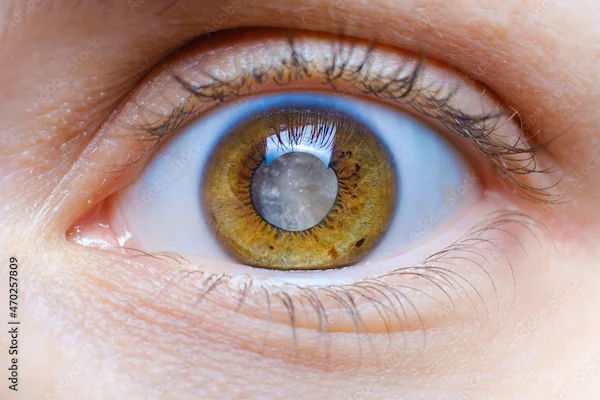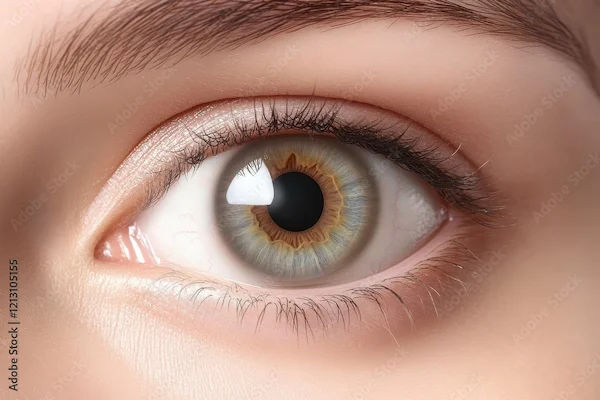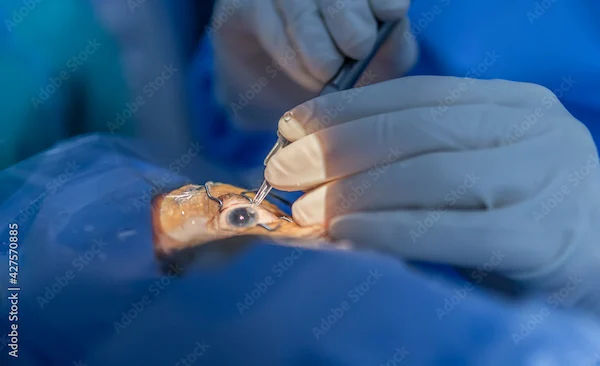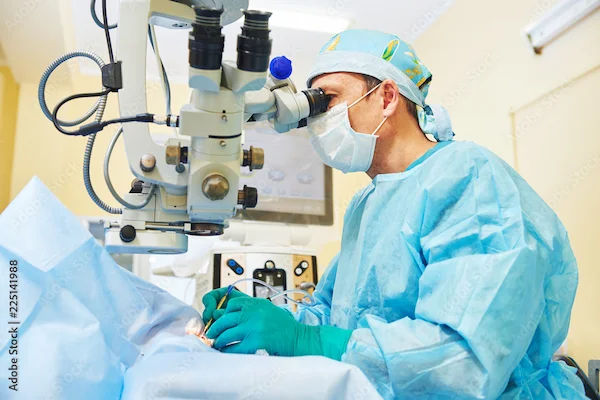Benefits Of Early Cataract Surgery
Learn the key benefits of early cataract surgery, how it improves vision and quality of life, and why timely treatment matters.

Written by Dr.Sonia Bhatt
Last updated on 15th Jul, 2025
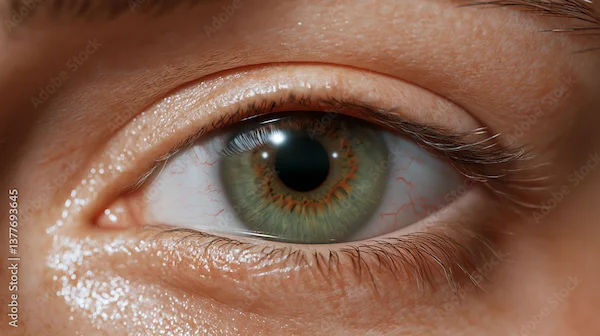
Introduction
Cataracts are a common eye condition that affects millions of people, especially as they age. If left untreated, cataracts can lead to blurry vision, difficulty seeing at night, and even blindness. Fortunately, cataract surgery is a safe and effective treatment that can restore clear vision.
One of the most important things to know is that early cataract surgery can significantly improve your quality of life. Many people wait too long before considering surgery, thinking they can manage with glasses or brighter lighting. However, delaying treatment can make daily activities harder and increase the risk of complications.
In this article, we’ll discuss the benefits of early cataract surgery, signs that you may need it, and how the procedure works, so you can make an informed decision about your eye health.
What Are Cataracts?
Cataracts occur when the natural lens of the eye becomes cloudy, leading to blurred or dim vision. This happens due to ageing, injury, or medical conditions like diabetes. Over time, cataracts worsen, making it difficult to read, drive, or recognise faces.
Common symptoms of cataracts:
Blurry or foggy vision
Increased sensitivity to light
Difficulty seeing at night
Colours appearing faded or yellow
Frequent changes in eyeglass prescription
If you notice these symptoms, it’s important to consult an eye specialist.
Consult Top Specialists for Personalised Eye Health Advice
Why Early Cataract Surgery Is Beneficial
Many people believe they should wait until their cataracts are "ripe" before considering surgery. However, modern cataract surgery is safer and more effective when done early, rather than waiting until vision is severely affected.
1. Better Quality of Life
Cataracts can make everyday tasks frustrating—reading, driving, or even watching TV becomes difficult. Early surgery restores clear vision, helping you stay independent and active.
2. Reduced Risk of Falls & Accidents
Poor vision increases the risk of falls, especially in older adults. Early cataract surgery improves depth perception and reduces accidents.
3. Quicker Recovery
When cataracts are removed early, the eye is healthier, leading to a faster and smoother recovery. Advanced cataracts can make surgery more complex.
4. Prevention of Other Eye Problems
Severe cataracts can lead to glaucoma or retinal damage if left untreated. Early removal helps avoid these complications.
5. Improved Night Vision
Many people with cataracts struggle with night driving due to glare from headlights. Surgery can restore clear night vision, making driving safer.
6. More Lens Options
Modern cataract surgery allows for customised intraocular lenses (IOLs) that can correct nearsightedness, farsightedness, or astigmatism. Early treatment means more choices for better vision.
When Should You Consider Cataract Surgery?
You don’t have to wait until your vision is severely impaired. Consider surgery if:
Daily tasks such as reading, driving, or using screens are becoming difficult
Glasses no longer improve your vision
Night vision is poor, making driving unsafe
Eye strain or headaches are frequent
An eye doctor can assess your condition and recommend the best time for surgery.
What to Expect During Cataract Surgery
Cataract surgery is one of the safest and most common procedures worldwide. Here’s what happens:
1. Pre-Surgery Evaluation
Your doctor will measure your eye and discuss lens options like monofocal, multifocal, or toric lenses.
2. The Procedure (15-30 minutes per eye)
A small incision is made in the eye.
The cloudy lens is broken up and removed using ultrasound (phacoemulsification).
A clear artificial lens (IOL) is placed.
No stitches are needed—the eye heals naturally.
3. Recovery
Most people see improvement within 24-48 hours.
Full recovery takes about 4-6 weeks, but you can resume light activities quickly.
Eye drops are prescribed to prevent infection and aid healing.
Tips for a smooth recovery:
Avoid rubbing your eyes
Wear sunglasses outdoors
Follow your doctor’s instructions on eye drops
Avoid heavy lifting or swimming for a few weeks
Myths About Cataract Surgery
Cataract surgery has come a long way, but several outdated beliefs still cause unnecessary hesitation. Let’s clear up some common myths and understand the facts behind this safe and effective procedure.
Myth: You should wait until your cataract is ‘ripe’.
Fact: Modern surgery is safer and more effective when done early.
Myth: Cataract surgery is painful.
Fact: The procedure is painless and performed under local anaesthesia.
Myth: Cataracts can come back.
Fact: Once removed, cataracts do not return. However, a condition called posterior capsule opacification may occur, which is easily treated with laser therapy.
When to See a Doctor
If you’re experiencing vision problems, don’t delay—early treatment can prevent complications and improve your life.
Book a consultation with an Apollo24|7 eye specialist today for a thorough eye check-up and personalised treatment plan.
Final Thoughts
Cataract surgery is a life-changing procedure that restores clear vision and independence. The earlier you address cataracts, the better your results will be. If you or a loved one is struggling with vision problems, consult an eye specialist to explore your options.
Remember—clear vision is within reach! Don’t wait until cataracts affect your daily life. Take the first step toward better eyesight today.
Consult Top Eye Specialists
Consult Top Specialists for Personalised Eye Health Advice
Dr. S Venkateswaran
Ophthalmologist
35 Years • MBBS, PGD (OPTHALMOLOGY)
Tiruvannamalai
Shiva Eye And General Hospital, Tiruvannamalai

Dr. Anupa Gulati
Ophthalmologist
25 Years • MBBS, Dip in Ophthalmology
New Delhi
Visitech Eye Centre Green Park, New Delhi

Dr Rajesh Rastogi
Ophthalmologist
33 Years • MBBS, MS Ophthalmology
New Delhi
Rotary Diabetic Centre, New Delhi
Dr. Akashdipta Saha
Ophthalmologist
4 Years • MBBS, MD(Ophthalmology), Fellowship in Retina & Vitreous
Delhi
AIIMS, Delhi
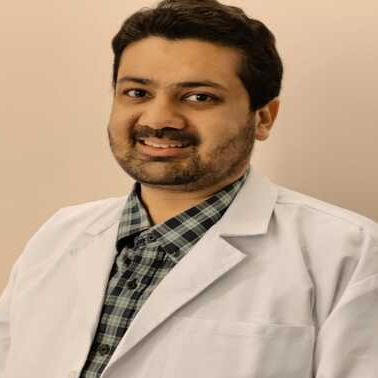
Dr. Anuj Singhal
Ophthalmologist
10 Years • MBBS, MS Ophthalmology, DNB Ophthalmology
New Delhi
Eye7 Chaudhary Eye Centre, New Delhi
Consult Top Eye Specialists
Dr. S Venkateswaran
Ophthalmologist
35 Years • MBBS, PGD (OPTHALMOLOGY)
Tiruvannamalai
Shiva Eye And General Hospital, Tiruvannamalai

Dr. Anupa Gulati
Ophthalmologist
25 Years • MBBS, Dip in Ophthalmology
New Delhi
Visitech Eye Centre Green Park, New Delhi

Dr Rajesh Rastogi
Ophthalmologist
33 Years • MBBS, MS Ophthalmology
New Delhi
Rotary Diabetic Centre, New Delhi
Dr. Akashdipta Saha
Ophthalmologist
4 Years • MBBS, MD(Ophthalmology), Fellowship in Retina & Vitreous
Delhi
AIIMS, Delhi

Dr. Anuj Singhal
Ophthalmologist
10 Years • MBBS, MS Ophthalmology, DNB Ophthalmology
New Delhi
Eye7 Chaudhary Eye Centre, New Delhi
